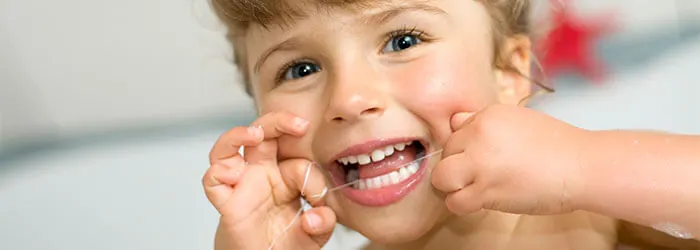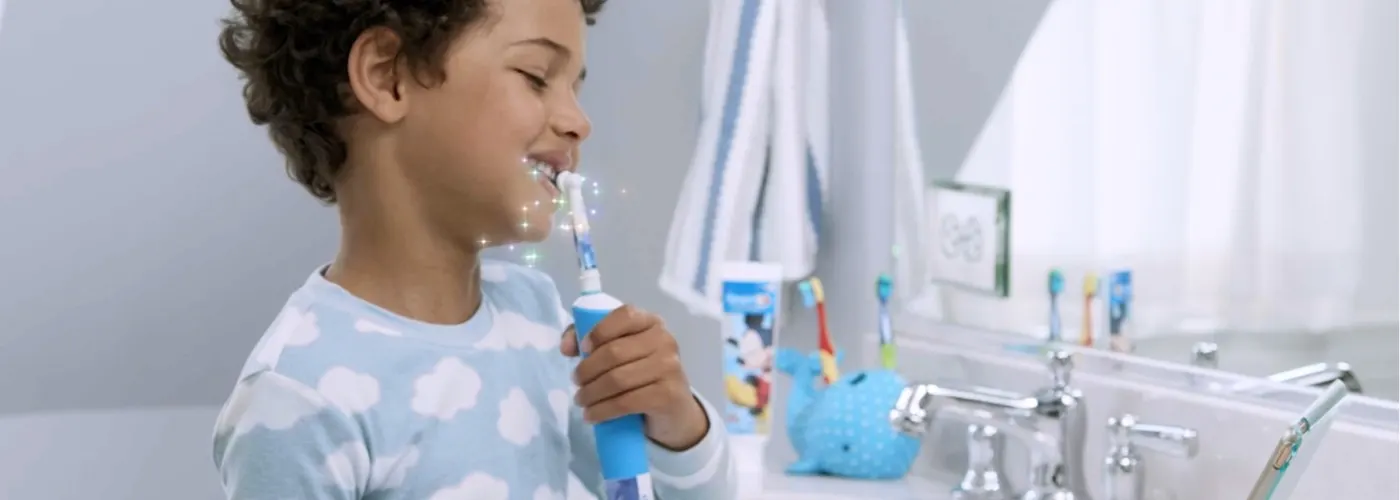
Tips to Make Oral Health Care Fun
Dental health is vital for general health and appearance in childhood and all through life. Preventative dentistry, fighting against oral problems, doesn’t have to be boring; actually, it can be fun. This is an important lesson that all children should learn at an early age to help them get the most out of their oral health routine.
Children need to be told by the adults in their lives that caring for your teeth and gums is just as important as washing your hands. Also, nothing works better than setting a good example by practicing good oral care yourself.
Make Brushing and Flossing Fun
Think of creative ways to make brushing your teeth fun. For example, listening to fun sounds or songs while brushing can help make the entire experience a pleasant, and even fun, one. Try listening to a song that is two minutes long to help keep yourself and your kids brushing for the full duration of time recommended. Also, having a cool toothbrush designed for kids that features their favorite characters helps brings out the fun in brushing and allows children to bring their favorite cartoon and television friends into the bathroom with them.
To get kids into the habit of daily flossing as part of a good oral care routine, parents need to make flossing fun and easy. Some kids complain, “Flossing hurts my gums,” but that need not be the case. Kid-friendly flossers are designed for children’s small mouths and sensitive gums. Using age-appropriate products can help young children have a positive association with oral health and get them accustomed to daily flossing.
Here are some other tips for parents to help teach good oral care habits:
Monitor children younger than 8 years old. Make sure they use no more than a pea-sized amount of fluoride toothpaste when brushing their teeth. And be sure that they spit out the toothpaste rather than swallowing it when they’re done brushing.
Make oral care a family event. Brush and floss your own teeth at the same time as your child. You are setting a good example and demonstrating the correct techniques for brushing and flossing.
Buy the right size. Choose a toothbrush that is the right size and design for your child’s level of development. Toothbrushes for toddlers have wide, easy-to-grip handles; small, narrow heads and soft bristles. Toothbrushes for older children have slightly longer handles to reflect an older child’s improved coordination and larger heads to accommodate growing mouths and teeth.
Develop a Reward System
Children should brush their teeth twice a day and floss daily, so try keeping track of your child's brushing on a calendar by the sink with gold stars. If there are two stars at the end of the week, play their favorite game on Friday night as a special prize.
Make Brushing Time Family Time
At night, get together in the bathroom to brush your teeth for the recommended two minutes. Play your favorite song (which is usually around two minutes) and brush together for the duration of the song.
Bring Variety to Brushing
Let your children choose different kinds of fluoride toothpaste, toothbrushes and floss to keep in the bathroom so that they can have options each time they brush.
Making Kids Comfortable with Dentists
Dental care plays an important role for health and appearance, both in childhood and throughout adult life. Preventative dentistry is so good these days that our kids can look forward to keeping those pearly whites bright and shiny all their lives. And we now know so much about keeping fear and pain out of dental care that kids should have no reason to worry when it's time for those twice-a-year visits. Here are a few things you can do to be sure your child gets the right care and develops an attitude that will ensure that his smile stays bright for a lifetime.
Pick a Kid-Friendly Dentist
There are pediatric dentists who have additional training and interest in kids' dental issues. If you don't have one in your community, look for a dentist whose waiting room, staff attitude and interaction with children tell you it'll be a good experience. Ask your health care provider for some suggestions if you don't know where to start.
Get Kids in the Right Frame of Mind for the Dentist
Dentists recommend dental checkups every six months, which can be scary for many children. So prepare them beforehand. Try using picture books or do some role-playing exercises to explain to kids what to expect during a dental visit, or bring a child in before the time of the appointment to get acquainted with the place. You can also bring a well-behaved 3-year-old with you on your own checkup so they can get used to the idea. After the visit, reward them for good behavior with their favorite television show or a fun activity.
Examine Your Own Attitude About the Dentist
Many parents have some memories of bad dental experiences, and they can sometimes give off negative messages about the dental chair without even knowing it. The parent who can be most positive about the visit should be the one to accompany the child to the dentist.
Respect Those Baby Teeth
Even though your child will lose his or her baby teeth, proper care and treatment, including fillings, sealants and extraction of dead teeth, will help ensure that the jaw and teeth underneath grow well and stay healthy. Be ready for suggestions about care that you didn't have as options when you were a kid. Also remember to ask your dentist about fluoride rinses to help better protect your child's teeth from decay.
Establish an Oral Care Routine
Going to the dentist isn't the only thing that is important. Keeping up with a good oral health routine at home is key. Here are a few things that you can do at home between visits to maintain good oral care:
Teach kids to brush twice a day. Good times to brush are after breakfast and before bed. Supervise at least the evening brushings for kids under the age of seven.
Use a soft-bristle toothbrush. Hard ones scrape the gums. Change the brush every three months, or sooner if it wears out.
Put a timer in the bathroom. Set it for at least two minutes. According to dental recommendations, two minutes is what it takes to get the job done, and kids often have difficulty keeping time.
Make sure your child is getting some sort of fluoride. Fluoride is available in mouthwashes and rinses, toothpastes, supplements or in fluoridated tap water.
Avoid sticky and sugary foods and drinks. They can cause decay (cavities).
With good dental care at home and in the dental office, as well as the right amount of fluoride, your child can learn to grow into adulthood with a healthy smile.
Related Articles
Sign Up
for expert advice and exclusive offers








